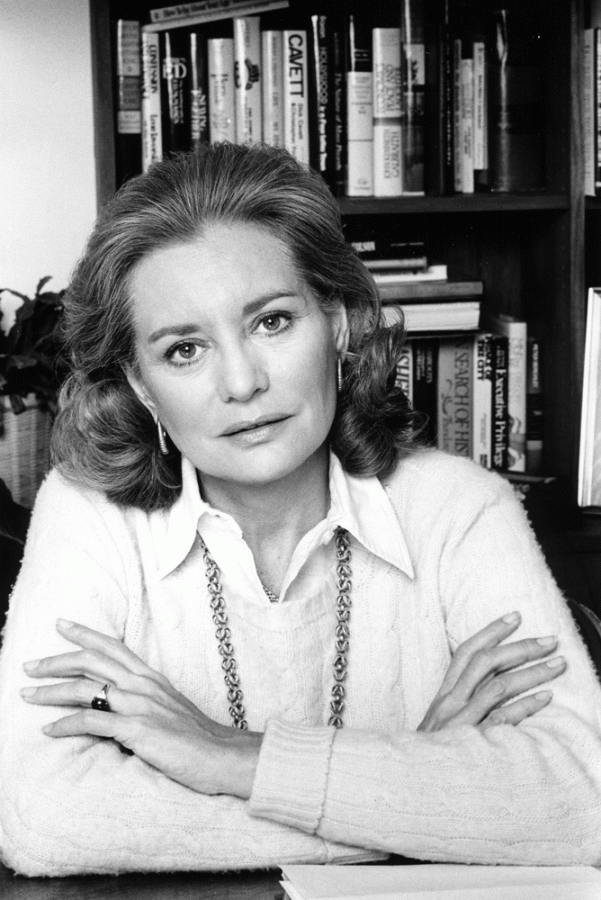The Legacy of Barbara Walters
January 13, 2023
At the end of last year on December 30, 2022 iconic journalist Barbara Walters passed away from Dementia and Alzheimer’s. Barbara Walters was able to surmount in an industry that was heavily dominated by males, while originally behind the camera in the 1950’s with producing and writing she would ultimately make her first appearance on screen in the 1960’s. Over the course of a 60-year career she left an indelible mark.
On her passing, US Magazine ran a tribute where several prominent media figures shared their thoughts about the late Barbara Walters. One of her co-hosts on The View, Meghan McCain, paid her respects stating “Barbara Walters will always be known as a trail blazer. Her hard hitting questions and welcoming demeanor made her a household name and leader in American journalism”
Barbara Walters attributed her comfort level and confidence of being around famous people to her childhood when her father, a booking agent for famous nightclubs, would bring her to rehearsals where she would often be surrounded by celebrities. It’s clear that in her later years, this exposure gave her the confidence to ask such tough questions that many would have backed away from.
Walters’ career in Journalism took a circuitous path as she majored in English at Sarah Lawerence College in New York. Her first job had nothing to do with Journalism. She started at an advertising agency, then took a position in public relations with a TV network. After some time, she started to write and produce children’s TV programs. She took a brief hiatus during her first marriage, but quickly worked her way back to the media industry. She transitioned from taking a role first as a researcher and writer for TV shows to her first on-camera position as a “Today Girl”. At a time when women were expected to do little more than be attractive, make small talk with dominant male hosts, and introduce commercials, Barbara Walters was beginning to ask punchy questions.
Later in her career, she was famous for interviewing prominent figures and it became a tradition for each president and the first lady to do an interview starting with the Nixons to the Obamas. Richard Nixon once joked in an interview with ABC News, “You were there so often… We thought you were on the staff”.
Because of her credibility interviewing US presidents, many foreign politicians requested or allowed her an interview, including controversial figures such as Ayatollah Khomeini, Saddam Hussein, Thatcher, Gaddafi, Castro, Yeltsin, Putin, and al-Assad. The reason she got these interviews was because they wanted her to help project legitimacy in the world stage.
Liz Smith, a famous gossip communist and editor, said of Walters, “Barbara is the only person today who crosses all lines, She’s better known than most of the stars and leaders she interviews. There is no foreign president who doesn’t call her ‘Barbara’. She’s very generous, has a real social conscience, is totally dedicated to New York and is on the best-dressed list. And she has enough money to entertain”.
After years of success, Walters, like many, decided to start sharing her wealth and fortune with others. Some causes that she supported include American Foundation for AIDS Research, American Heart Association, American Stroke Association, Cancer Research Institute, Exploring The Arts, Michael J. Fox Foundation. She also recently donated $15 million to her alma mater, Sarah Lawerence College.
Barbara Walters inspired many women to push the boundaries of Journalism. In 2004, Oprah Winfrey was interviewing Barbara Walters and recalled a story from her own childhood in which she said, “When I was 17, I entered the local Miss Fire Prevention Contest. I knew the judges would ask what I hoped to do with my life, and I’d planned to say, ‘I want to become a fourth-grade teacher.’ But I’d seen the Today show that morning, and it popped into my head to say my goal was to be a TV journalist. ‘What kind of journalist?’ one of the judges pressed. I’ve never forgotten my answer: ‘I want to be like Barbara Walters.’”
In that same interview, Walters shared with Oprah, “It’s good to fail sometimes. When you fail, you have to prove yourself. That’s often the best thing that can happen because then you are sure that your success isn’t just luck.”
It’s clear that Barbara Walters was a very successful and respected journalist and she showed this by her hard work at a time when women were not taken seriously. Before researching this article, I didn’t know much about Barbara Walters but after writing this, it’s clear that her ability to speak the truth without allowing herself to be intimidated was one of the keys to her success and something all journalists should strive to do. Her legacy shall be remembered by many for generations to come.





















































